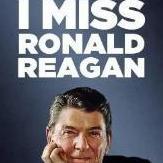I'll give my 2 cents as someone who believes themselves to be a devout Christian and a recent off-the-street UPT select who's never killed anyone and won't be flying a combat mission, but did interview for a platform that could go kinetic and thus I had to be ready to take life before throwing my hat in the ring. I'll go light on the scripture and keep this relatively agnostic from a faith standpoint as I know you didn't specify your faith, but if you ever want to chat on more nuanced aspects of this topic (religion, philosophy, etc.), please feel free to PM me any time. I've given this one a lot of thought and it's good that you're doing so, too.
So here's my perspective--and again--as nothing more than a civilian UPT select who's never been in combat, most likely never will be, and is nothing close to an expert or tough guy:
I'm an avid shooter, and, once I'm in a CHL/CCL-friendly state soon, I'll be carrying my Glock 17 with me basically everywhere...and especially in church, as odd that may seem.
So, whether I'm in church, a grocery store, a movie theater--whatever--if, heaven-forbid, I'm pushed to the point where my only option left is to engage a threat with my pistol, at that point, morally, I'm feeling pretty free and clear. Similar to how many of us were raised with our parents saying, "You don't start fights, but you have our permission to finish them," that's how I feel about engaging a threat with my concealed hand gun (or weapons at home during a home invasion, for instance). At some point, you're forced with the decision to take a righteous stand to protect life or to allow evil to prevail in that given situation, potentially letting it take the lives of others, even that of you and your family's. The latter is wholly unacceptable to me in every way possible, and I see no conflict with that philosophy and what I read in scripture.
For me, if I may be so bold, it would be the same in combat. This may not be apples to apples, but, IMHO, it's close enough:
If you're put in a position today at CostCo where you're armed and you see a bad guy indiscriminately shooting innocent people, do you believe that your religious faith prevents you from taking that shooter's life in order to save others, even your own and your family's? If so, I respect where you land--I have true pacifists in my family who share the same faith as I do, who have served honorably, and who have ultimately come to own different convictions than my own. But if that's not you--if you see no issue with taking life in such a scenario--then let me lay out a bit more insight into all of this:
First, from my relatively limited understanding, you're not dropping any ordnance without a good amount of teamwork to confirm the target and to get approval to be cleared to fire. You'll have a knowledgeable and often highly experienced team of professionals around you all contributing to getting this right. You won't be going at this alone, and your teammates almost assuredly won't want to take any more life than they have to either...and when they do, they'll want to get it right just as much as you do. To me, that counts for a lot.
Second, if you are in a position in a fighter to take life, odds are you're hitting a target who is either actively engaged in harming Americans (or innocent civilians), or they are planning to do so in some capacity. For me, if there are American lives (or other innocent lives) to protect, I want to be the guy doing it--I can't think of a more fulfilling or noble task than that of stepping up to the plate--even putting yourself in harms way--to support troops on the ground or to protect innocent civilians.
Those kind of kills are the kind that--again, if I may be so bold--I don't believe I'd struggle a whole lot with. Having a few really close relationships to folks who have taken lives (and are still involved in doing so in the active duty Air Force and the Air National Guard), what they've told me is that they've yet to have a kill they wrestled with morally...but that it's actually the shots that they couldn't take or couldn't make (for whatever reason; if you ever read "American Sniper" by Chris Kyle, i believe he shared very similar sentiment) that still eat at them. Imagine having troops in contact and you can't get there in time before more casualties are taken or lives are lost...or, somehow, you drop on the wrong location.
How do you think you'll handle that? How do you think you'll handle seeing/knowing that something horrific is happening to civilians on the ground, you're armed, nearby, and mentally ready to take action, but--for whatever reason--you are not cleared to intervene and stop that atrocity from happening? What if you see footage of that atrocity the next day on the news or shared on another message board somewhere, and now that's with you forever?
I say all of that to say this: While I'm certainly not trying to tell you how to think about these things--just help as best as I can with my limited experience--situations like those above along with fratricide were the things that were a lot more prevalently on my mind, and that I gave even more thought to before submitting my applications.
I hope that's helpful--my apologies for the novel this evolved into--and best of luck to you.
















